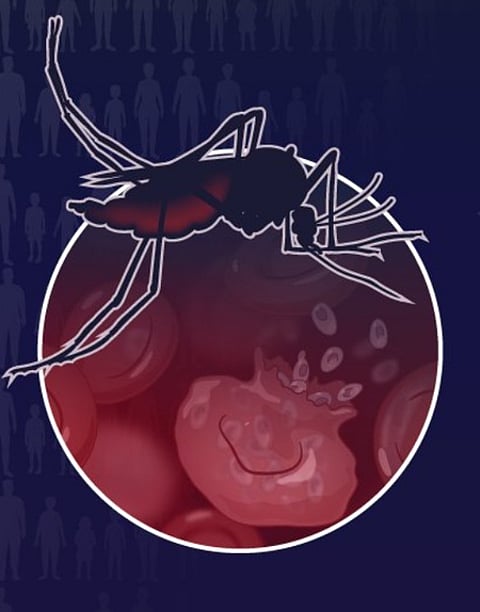Alert in Kerala’s Malappuram after 3 of a migrant worker family test positive for malaria
Preventative and surveillance measures in the area intensified

Malappuram: Three members of a family of migrant workers, belonging to Uttar Pradesh and residing in Malappuram district of north Kerala, have tested positive for malaria on Monday, prompting the state health department to intensify preventative and surveillance measures in the area.
The individuals, including a child and a woman, who reportedly arrived in Wandoor's Ambalapadi area from UP just four days ago, tested positive for the vector-borne disease, the officials confirmed. They have been admitted to an isolated ward in the Wandoor hospital following the detection.
The detection has led to immediate action by the local health authorities to contain any possible spread of the disease. Joint teams of health department officials, including health inspectors and junior health inspectors, alongside ASHA workers, launched house-to-house visits in the Wandoor area to conduct awareness campaigns and distribute informational pamphlets on malaria prevention.
Also Read: UAE Ministry withdraws malaria medicine
Malaria at a Glance
Cause: Life-threatening disease caused by Plasmodium parasites, transmitted through bites of infected female Anopheles mosquitoes.
Symptoms: High fever, chills, headache, sweating, nausea, vomiting, muscle pain, and fatigue. Severe cases can lead to anemia, organ failure, or death.
Types in India: Plasmodium falciparum (deadliest) and Plasmodium vivax (most widespread).
Prevention: Mosquito nets, insect repellents, indoor spraying, and prophylactic medicines in high-risk areas.
Treatment: Early diagnosis crucial; antimalarial drugs such as artemisinin-based combination therapy (ACT) are most effective.
Global Impact: WHO estimates over 200 million cases annually, mostly in Africa and South Asia.
The teams are identifying potential mosquito breeding grounds, particularly stagnant water in discarded plastic items and plant pots, and advising residents on source reduction methods.
"We have launched immediate, comprehensive anti-malarial activities and awareness drives in the region," said Sreejith G, junior health inspector, emphasising that the cases are currently being treated as 'imported' due to the patients' recent travel history from an endemic state.
The medical department is also undertaking fever surveillance and blood sample collection drives, especially among the resident migrant worker population, to detect and isolate any further cases swiftly.
The focus remains on controlling the mosquito breeding and preventing localised transmission in the highly sensitive area. Kerala has achieved a sustained, steep decline in its malaria caseload over the last decade, transitioning from a state that effectively eradicated the disease in 1965 to one battling re-introduction primarily via external sources, according to health department data.
Malaria cases in the state have shown a consistent downward trend, dropping significantly from 2,299 cases in 2010 to 656 in 2019, before further reducing to 309 cases in 2021, according to official reports from the Directorate of Health Services.
Sign up for the Daily Briefing
Get the latest news and updates straight to your inbox



